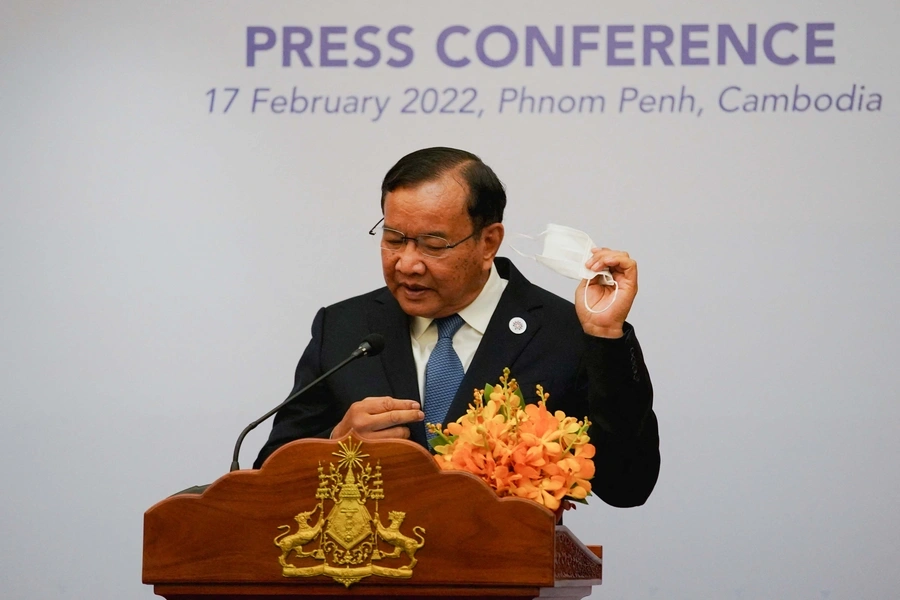What to Watch for at the Upcoming U.S.-ASEAN Summit

Although it has been overshadowed by the war in Ukraine, the countries of the Association of Southeast Asian Nations will be holding a U.S.-ASEAN Special Summit with President Biden on May 12 and 13 in Washington. The summit had been scheduled for March, but the Ukraine war led to its postponement. Expect several themes to dominate the discussions.
Ukraine
More on:
The Biden administration knows that views on the Ukraine war in Southeast Asia are decidedly mixed, as I have noted in prior blogs. There are countries like Myanmar that openly support Russia, ones like Vietnam that are very close to Russia, those like Indonesia that are neutral and mostly want to ignore the war, and those like Singapore that have taken positions very close to that of the United States, Japan, and European allies. The administration may try to press some important Southeast Asian partners, like Vietnam, to distance themselves more from Russia, and press others, such as Indonesia and Thailand, to adopt more critical stances as well.
The Indo-Pacific Economic Framework
The administration is developing its Indo-Pacific Economic Framework, a broad plan that is supposed to be the linchpin of the Biden administration’s efforts to show the United States is again willing to take the lead on economic and trade issues in the region. But the framework is far from a trade deal – even as Asian countries have become more closely integrated through the Trans-Pacific Partnership and are planning larger trade deals without the U.S. – and it may not even contain any binding commitments to opening U.S. market access at all. It instead may be a very flexible document concentrating on areas like improving supply chain resilience, improving infrastructure, and possibly creating a digital trade agreement. But such broad flexibility – designed to allow virtually any country in the region to sign on – will mean that the framework is not going to change much in the region, and is not going to show that the United States can take regional trade leadership. Many Southeast Asian states have shown only minimal interest in the framework, as a kind of courtesy, while other Asian powers, like Japan, have pressed for it to be a more serious document that includes binding commitments and offers U.S. market access in certain areas.
Myanmar
The situation in Myanmar continues to deteriorate. The junta ruling the country has stepped up its offensive against many ethnic minority militias and the militias that emerged after the February 2021 coup, often made up of members of the Bamar majority group who have left regular jobs to become guerillas. The army has faced some serious losses and defections, and has utilized a broad range of its usual brutal tactics against military foes and civilians. The economy is failing and public health is a fiasco, as the military targets doctors, many of whom have been against the junta, and also has destroyed many of the best hospitals. ASEAN has done little of substance regarding the coup, civil war, and failing state in Myanmar. It did not allow the junta’s leader to attend its summit last year, has invited non-political people to represent Myanmar at ASEAN meetings, and has developed a Five-Point Consensus between the organization and Myanmar – most of which the junta has simply ignored, like the pledge to end the violence which was at the center of the Consensus. (Junta leader Min Aung Hlaing will not attend the summit in the U.S. either.)
More on:
The chair of ASEAN this year is Cambodia (the chair rotates), and Cambodian Prime Minister Hun Sen has often tried to ignore the Myanmar crisis, and granted the junta legitimacy by visiting the country in January. The organization as a whole has taken no significant steps to pressure the junta to adhere to the Consensus or make any substantial moves away from the current level of intense repression. The Biden administration will try to persuade ASEAN to take tougher steps against Myanmar, but it is likely to get nowhere with ASEAN.
COVID-19, China
In a virtual summit last year, the Biden administration pledged a modest amount of COVID aid, but the region also has become increasing consumers of U.S. and European-made vaccines, as some countries that initially used Chinese vaccines, like Malaysia, switched away from them. Overall, China’s unpopularity in the region has grown in the past year, and China’s own domestic problems, stemming largely from its zero-COVID strategy, have hindered its normally robust regional diplomatic efforts. The Biden administration may try to use the summit to bolster ties to ASEAN states that had been wooing Beijing, like Indonesia, but got little from it, as compared to closer U.S. partners like Singapore and Vietnam.
 Online Store
Online Store